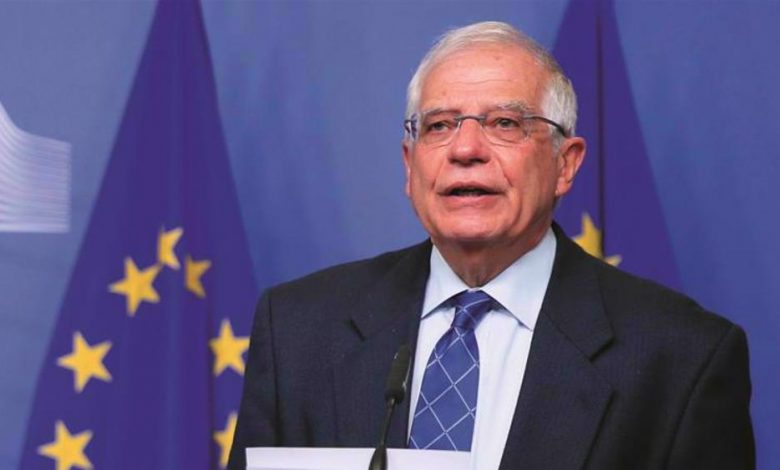EU advises ‘maximum diplomacy’ instead of ‘maximum pressure’ in dealing with Iran
The European Union says it is high time the former American administration’s “maximum pressure” policy towards Iran was jettisoned in favor of diplomatic engagement and interaction, reminding how Washington undermined a 2015 nuclear deal between Iran and world powers through the approach.

“We need to move from ‘maximum pressure’ to ‘maximum diplomacy’ through the JCPOA Joint Commission,” EU foreign policy chief Josep Borrell told Russia’s Interfax news agency before making a trip to Moscow on Thursday.
He was referring by abbreviation to the Joint Comprehensive Plan of Action, the official name of the nuclear agreement that came about between Iran and the P5+1 group of states — the US, the UK, France, Russia, and China plus Germany — in Vienna that year. By the Joint Commission, the EU official, meant a mechanism that is joined by the signatories’ representatives and monitors the deal’s implementation.
Under his signature “maximum pressure” policy against Iran, former US president Donald Trump withdrew Washington from the landmark deal and restored the economic sanctions that it had removed. The US also began threatening third countries with “secondary sanctions” if they violated the American bans.
Trump abandoned the deal despite its multilateral nature and the fact that it has been endorsed as United Nations Security Council Resolution 2231.
“US withdrawal from the JCPOA and ‘maximum pressure’ policy, including secondary sanctions, had a negative impact,” the European official acknowledged. “The JCPOA could not reach its full potential – including in the economic field,” he added.
Trump’s course of action has to be set aside in order “to try and build a new positive momentum and to ensure once again full implementation of the agreement, including by Iran,” he added.
Borrel, meanwhile, reminded how Trump successor Joe Biden has voiced a willingness to return the US to the JCPOA, saying, “The new U.S. administration has clearly indicated a new approach and all JCPOA participants are ready to engage.”
Iran says the United States’ potential return to the JCPOA could only be meaningful if Washington removed all of the oppressive sanctions it has imposed on the Iranian nation.
Even the supposed expression of interest in rejoining the JCPOA has, meanwhile, not been followed by a favorable gesture on the part of Washington.
On Wednesday, the US State Department expressed displeasure after the UN’s top court issued an interim ruling against Washington in a case brought by Tehran against the American sanctions.
The International Court of Justice issued the ruling, rebuffing the US claim that the ICJ lacked jurisdiction to judge the lawsuit.
State Department spokesperson Ned Price reacted, saying, “We have great respect for the International Court of Justice. At the same time, we are disappointed that the court did not accept our well-founded legal arguments, that the case Iran brought is outside the court’s jurisdiction, and the court should not hear it.”
UN envoy: US still violating UNSCR 2231 with illegal Iran sanctions
Meanwhile, Iran’s UN Ambassador Majid Takht-Ravanchi said the State Department’s position showed that the US had still not stopped violating the Security Council resolution that has endorsed the JCPOA.
New US admin purports to support multilateralism, yet is “disappointed” by @CIJ_ICJ rejection of its objection to case on US sanctions (on basis it is outside Court’s jurisdiction).
US also 𝙨𝙩𝙞𝙡𝙡 violating UNSCR 2231 with illegal sanctions on Iran.
Not a good fresh start.— Majid Takht Ravanchi (@TakhtRavanchi) February 4, 2021
“New US admin purports to support multilateralism, yet is “disappointed” by @CIJ_ICJ rejection of its objection to case on US sanctions (on basis it is outside Court’s jurisdiction),” he tweeted.
“US also 𝙨𝙩𝙞𝙡𝙡 violating UNSCR 2231 with illegal sanctions on Iran. Not a good fresh start,” the envoy added.







